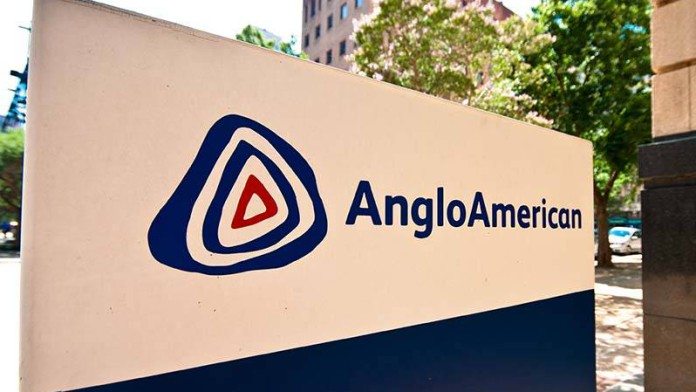
ANGLO American cemented its recovery after a sometimes excruciating two-year restructuring exercise by resuming the dividend and installing a policy of paying out 40% of earnings which in the half-year to June 30 equated to 48 US cents per share.
This was after halving net debt which CEO, Mark Cutifani, said had been well ahead of plan: “We have nearly halved our net debt to $6.2bn over the past year to take us well below our year-end target of $7bn,” he said. Shares in Anglo were 3.6% higher in the first 30 minutes of trade on the Johannesburg Stock Exchange.
Anglo virtually halved the number of assets in its 2014 portfolio in a review of the business that critics said had been too slow. Luckily, the commodity market recovered at the beginning of 2016 before pressure on Cutifani was ratcheted up further. He said today that the emphasis remained on cost controls and productivity.
“Our materially improved balance sheet strength, with gearing at 19% and net debt to annualised EBITDA of 0.8x, has supported the decision to resume dividend payments six months early, establishing a pay-out policy at a targeted level of 40% of underlying earnings,” he said in the group’s interim results announcement.
Responding minutes later in a media conference, Anglo CFO Stephan Pearce, who was appointed in September last year, said the group had not officially adopted a new net debt target He added, however, that the group was “happy” to continue lowering debt. “We will run much more conservative balance sheet than previously,” he said.
An average improvement of 30% in commodity prices and productivity improvements – in which each employee was judged to be producing 70% more compared to the firm’s 2013 financial year – were behind the 68% increase in underlying pretax earnings of $4.1bn. The outcome on the bottom line was a more than a $2bn turnaround in attributable profit which came in at $1.4bn.
Overall group production was 9% higher year-on-year with notable performances achieved at Mines Rio, the Brazil iron ore mine which continued to ramp-up output, and De Beers which lifted its volumes in response to stronger demand for lower-value goods. But other assets continued to struggle including its Grosvenor met coal mine continues to produce far below name plate and the Los Bronces copper mine.
On the back of an improved financial performance, Cutifani said the group was now considering its growth options. “We have got some good options in a portfolio of smaller projects which have rapid payback, particularly in diamonds and copper, as well as smaller ones in coal and iron ore which will improve cash flows,” said Cutifani.
For the current financial year, however, capital expenditure, excluding capitalised operating cash flows, was expected to be approximately $2.3bn, some $200m lower than the previous guidance of $2.5bn.
The turnaround in Anglo’s performance represents two to three years of restructuring in which the group cut the number of assets in its portfolio to 37 from 68. It intended to hold about 35 mining assets as it neared completion of the restructuring process. This would not currently include Kumba Iron Ore, in which Anglo has a 70% stake, or its export coal mines which it previously wanted to sell.
Cutifani said the political and business environment in South Africa was “noisy”, as expected for a year in which the ruling party, the African National Congress (ANC), set about the often opaque process of electing a new president. As a result, the group would re-engage with the government on possible corporate activity next year.
Morgan Stanley identified the allocation of free cash flow, the renegotiation of the De Beers sales contract with Botswana, and the operating environment for the South African assets as key drivers for Anglo going forward. It said the dividend payout was higher than expected although it anticipated a 50% payout ratio. “Of course Anglo can top up the ordinary dividend with special dividends or buy backs,” it said in a note.
Said Barclays: “Overall, a strong set of results driven by better than expected cash generation. Interim dividend of 48c/share is a positive surprise”. Only 45% of analysts expected a dividend, it added.










